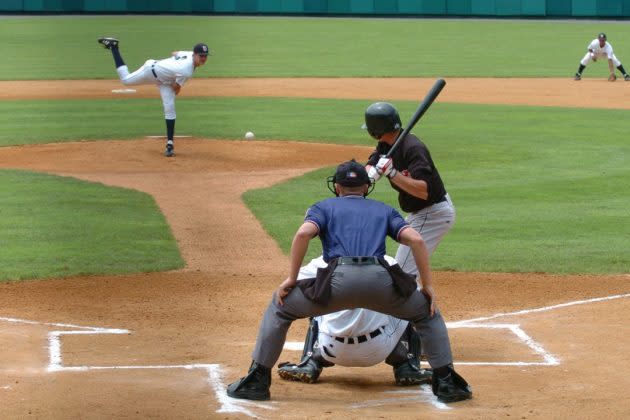Sea Unicorns Score Despite Dismissal in MLB Antitrust Suit

U.S. District Judge Andrew Carter last Wednesday dismissed a lawsuit that challenged Major League Baseball’s antitrust exemption because, he determined, MLB is still exempt from antitrust scrutiny.
“Plaintiffs believe that the Supreme Court is poised to knock out the exemption, like a boxer waiting to launch a left hook after her opponent tosses out a torpid jab,” he wrote. “It’s possible. But until the Supreme Court or Congress takes action, the exemption survives.”
More from Sportico.com
Judge Poised for a 'Bigger Pot of Gold' This Offseason: Cashman
Padres and Phillies Spend Big, Get Hot as 100 Wins Matter Less in MLB
But even in ruling against the four former minor league teams that sued, Carter, who presides in the SDNY, found that the plaintiffs established antitrust standing and plausibly pleaded an antitrust violation—points that could be relevant if MLB’s exemption is later narrowed or eliminated and antitrust law is applied.
Last year, the Staten Island Yankees, Norwich Sea Unicorns, Salem-Keizer Volcanoes and Tri-City ValleyCats sued MLB, saying the league and MLB teams violated antitrust law by stripping more than 40 minor league clubs of affiliations. As the former affiliates see it, MLB’s move was “nothing less than a naked, horizontal agreement to cement MLB’s dominance over all professional baseball.”
MLB insists the lawsuit is “patently frivolous.” Pursuant to the Supreme Court’s 1922 ruling in Federal Baseball Club v. National League, MLB is exempt from antitrust scrutiny. Although Congress and President Bill Clinton narrowed the exemption via the Curt Flood Act of 1998, the exemption remains in place for matters regarding minor league baseball.
Carter described the former affiliates as logically describing an injury that antitrust law is designed to redress. MLB’s revoking of minor league affiliations, he wrote, “serves to reduce competition between rivals by preventing plaintiffs from competing with each other for affiliations and preventing MLB clubs from competing with each other to affiliate with more minor league teams.” He added that “without their affiliations, ousted teams cannot attract top talent and are barred from playing against affiliated MiLB teams.”
The minor leaguers also adequately defined the relevant market. Carter wrote they, “allege that there are no reasonable substitutes for MiLB affiliations, explaining that non-affiliated MiLB teams cannot reach the same pool of talent, sponsors, or fans, particularly because they are barred from playing against affiliated MiLB teams.” He reasoned, “just as the NCAA and NFL have complete control over the market for college and professional football in the United States, MLB has complete control over the market for baseball.”
But Carter underscored the lawsuit’s fundamental flaw: none of the legal arguments can prevail if the law doesn’t apply. Although the Justice Department under Attorney General Merrick Garland filed a brief recommending Carter read MLB’s exemption narrowly, Carter found no daylight. Read expansively or narrowly, the exemption unambiguously applies to the minors.
Game over?
Not so fast.
The teams can appeal Carter’s ruling to the U.S. Court of Appeals for the Second Circuit, although Carter suggested the teams would face long odds there, too. In Wyckoff v. MLB Commissioner, baseball scouts argued that MLB teams conspired to decrease competition for their services. In 2017, the Second Circuit affirmed the lawsuit’s dismissal, finding that the scouts’ claims concerned the business of baseball and thus fell within the exemption. Wyckoff is a discouraging precedent for the former affiliates.
A loss at the Second Circuit wouldn’t necessarily mark the end of the road, either. The teams could petition the Supreme Court. The Court only agrees to review about 1% of petitions, but some of the justices might be interested. In writing the Court’s 9-0 opinion in NCAA v. Alston, Justice Neil Gorsuch criticized the logic of MLB’s exemption. Businesses that impact commerce in multiple states, he explained, are ordinarily subject to antitrust scrutiny. Meanwhile, Justice Brett Kavanaugh’s oft-quoted concurring opinion, though not addressing MLB’s exemption, expressed support for applying basic antitrust analysis to economic restrictions in sports.
MLB’s antitrust exemption is also the target of review by the Senate Judiciary Committee, to which MLB commissioner Rob Manfred recently wrote a letter attempting to justify the exemption. It remains to be seen how the midterm elections will impact the committee’s leadership and priorities, though both Democratic and Republican members have led the bipartisan review.
Best of Sportico.com
